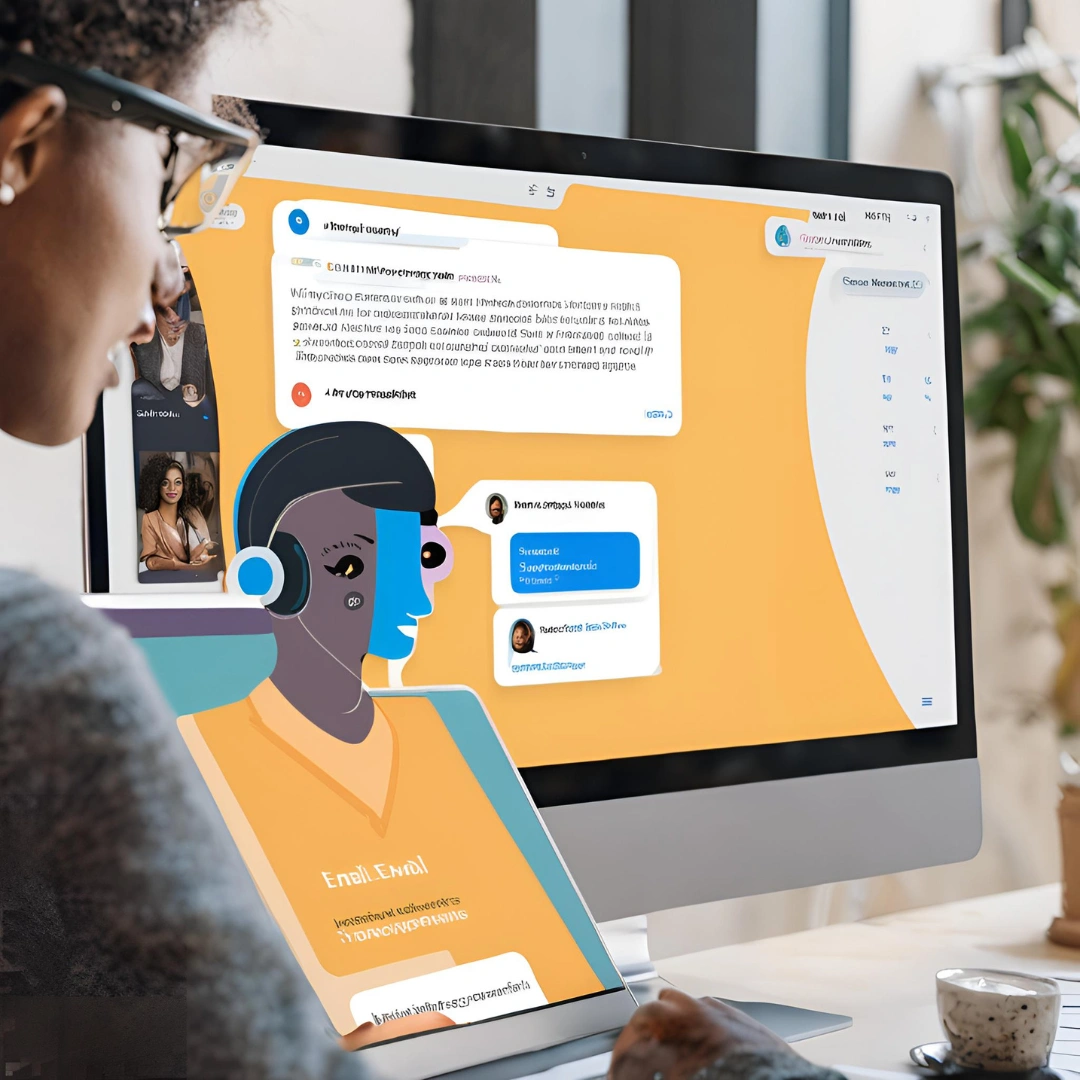In the rapidly evolving digital world of today, companies are always looking for fresh approaches to improve customer service. The use of artificial intelligence (AI) chatbots into email customer assistance is among the most revolutionary breakthroughs. These AI-powered solutions are transforming how companies engage with their clientele by offering individualized experiences, round-the-clock support, and faster response times. The use of AI chatbots in email customer care is anticipated to increase as 2024 approaches, allowing companies to expand their customer service departments while still maintaining high standards of customer satisfaction.
This blog examines the use of AI chatbots in email customer service, stressing the advantages, difficulties, and possibilities for the future.
1. The Rise of AI Chatbots in Customer Support
AI chatbots are already a crucial component of customer care plans for companies in a variety of sectors. Businesses are using AI to automate regular client interactions in a variety of industries, including retail, e-commerce, healthcare, and banking. This allows human agents to focus on more complicated problems.
AI chatbots can automate many of the initial consumer contacts in the context of email customer service, including answering often asked questions, forwarding inquiries to the relevant departments, and even handling basic problems without the need for human intervention. The following factors are driving the increasing use of AI in customer support:
-
Increased Customer Expectations: In this day and age, customers demand prompt and effective answers to their questions. AI chatbots ensure that customers are never left waiting for solutions by responding instantly.
-
Advances in AI Technology: Advances in machine learning (ML) and natural language processing (NLP) have made AI chatbots more proficient at comprehending and conversing with customers.
-
Cost-Effective Support Solutions: Companies are searching for ways to lower their expenses related to customer service. By automating several repetitive operations that would normally need human participation, AI chatbots provide a financially advantageous option.
2. How AI Chatbots Enhance Email Customer Support
Email customer care is changing significantly thanks to AI chatbots. The following are a few of the main advantages:
2.1. Faster Response Times
Faster response times are one of the main benefits of incorporating AI chatbots into email customer service. Chatbots can process and reply to several client concerns at once, which cuts down on wait times dramatically when compared to human agents.
For example, the AI chatbot can automatically reply with a pre-programmed response when a consumer emails with a popular question. This degree of automation lets companies handle a greater amount of requests while also expediting the assistance process.
2.2. 24/7 Availability
AI chatbots can offer 24/7 service, guaranteeing that clients get help even after conventional office hours. This is especially beneficial for international companies who have clients in several time zones. Whether a consumer emails a question on the weekend or at midnight, the AI chatbot can respond right away, improving the overall customer experience.
2.3. Personalized Responses
Contemporary artificial intelligence chatbots can provide tailored responses by examining client information and previous exchanges. Chatbots can customize their responses by using machine learning algorithms to take into account the customer's past purchases, support history, and preferences.
A customer's past inquiries about a certain product, for instance, may be mentioned by the AI chatbot in its response, giving the engagement a more tailored and pertinent vibe.
2.4. Handling High Volumes of Inquiries
Businesses frequently see an increase in client questions during busy periods, like the holidays or significant sales occasions. AI chatbots can handle a lot of emails at once, thus they can effectively handle this flood. This guarantees that, even in times of high traffic, no client is left waiting for a response.
2.5. Reducing Human Error
Even with their skill, human agents can make mistakes, especially when working on boring or repetitive activities. Conversely, AI chatbots are able to reliably and error-free respond to frequently asked questions. This results in a more dependable and consistent level of customer service.
3. Types of AI Chatbots in Email Customer Support
Email customer service employs a variety of AI chatbot varieties, each with unique skills and degrees of complexity. These are often classified as:
3.1. Rule-Based Chatbots
Rule-based chatbots follow pre-established workflows and rules. Based on the criteria built into them, they react to particular keywords or phrases in emails from customers and offer a relevant answer. Rule-based chatbots are good at answering routine and easy questions, but they struggle to manage more intricate or subtle consumer interactions.
3.2. NLP-Powered Chatbots
Chatbots using natural language processing (NLP) are more sophisticated than those using rule-based NLP. They are able to comprehend and analyze consumer inquiries in a more casual way. Natural language processing (NLP) enables chatbots to produce more insightful and pertinent responses by deciphering the context and intent of the user's email. These chatbots are especially helpful for answering more complicated questions that call for a more thorough comprehension of the client's requirements.
3.3. Machine Learning Chatbots
Chatbots that use machine learning have the ability to learn new things all the time and get better at responding. They examine consumer encounters, take notes, and modify their answers in light of data and feedback. As a result, machine learning chatbots are able to respond to a greater variety of inquiries and get more precise and efficient every time they communicate.
3.4. Hybrid Chatbots
The benefits of rule-based, NLP, and machine learning chatbots are combined in hybrid chatbots. They automate basic operations and easily escalate more complicated requests to human agents, providing a more flexible and scalable solution. This guarantees that clients, irrespective of the difficulty of their query, receive the finest support available.
Conclusion
AI chatbots are becoming more and more significant in email customer service, providing companies with a means to boost productivity, shorten response times, and provide individualized support. Chatbots will becoming much more advanced as AI technology develops, able to handle a greater variety of inquiries and offer an even better quality of service. AI chatbots in customer service have a bright future ahead of them, even though there are still obstacles to be solved. They have the power to completely change how companies communicate with their clients.





Leave a Reply